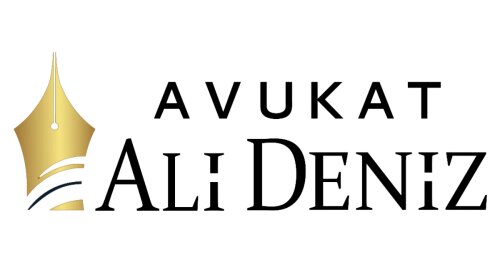Best Collaborative Law Lawyers in Sehitkamil
Share your needs with us, get contacted by law firms.
Free. Takes 2 min.
Free Guide to Hiring a Family Lawyer
List of the best lawyers in Sehitkamil, Turkey
About Collaborative Law in Sehitkamil, Turkey
Collaborative Law in Sehitkamil, Turkey, is a legal approach primarily used to resolve family disputes in a cooperative and respectful manner. Rather than going to court, the parties involved work together, with the assistance of their respective lawyers, to find solutions that meet the needs of both sides. This method focuses on open communication and problem-solving, aiming to preserve relationships and reach amicable agreements. It is a growing field in Turkey, as more people become aware of the potential for reduced conflict and more personalized outcomes compared to traditional litigation.
Why You May Need a Lawyer
There are several situations where you may find it beneficial to seek legal advice from a Collaborative Law practitioner:
- Divorce or separation where you wish to maintain a cordial relationship with your partner and decide on things like asset division, child custody, and support amicably.
- Family business disputes that require resolution without damaging family ties or the ongoing business relationship.
- Child custody and visitation rights discussions where an agreement needs to be reached focused on the best interests of the child.
- Any legal issue where you prefer a private, cooperative approach rather than public court proceedings.
Local Laws Overview
In Sehitkamil, Turkey, the legal framework for Collaborative Law is informed by the national legal system. Key aspects include:
- The Turkish Civil Code: Governs most family-related legal matters, providing a basis for negotiation and agreement.
- Mediation Law: While separate from Collaborative Law, it provides a legal context for alternative dispute resolution, often used alongside collaborative methods.
- Family Courts: Although Collaborative Law strives to avoid court, understanding their function and rulings is important as they provide legal enforcement for agreements reached.
Frequently Asked Questions
What is the main goal of Collaborative Law?
The main goal of Collaborative Law is to reach a mutually satisfactory settlement for all parties involved without proceeding to court.
Is Collaborative Law legally binding?
Yes, agreements reached through Collaborative Law are legally binding when a legally enforceable contract is drafted and signed by all parties.
How does Collaborative Law differ from mediation?
While both are alternative dispute resolution methods, Collaborative Law involves ongoing legal representation, whereas mediators facilitate discussions without representing either party.
Can Collaborative Law be used for issues other than family law?
While predominantly used in family law, Collaborative Law can be applied to other legal issues, including business disputes, as long as both parties agree to the process.
What happens if an agreement cannot be reached?
If an agreement cannot be reached, parties can choose to proceed to litigation. In such cases, new legal representation is usually required as collaborative lawyers agree not to participate in any subsequent court litigation.
How long does the Collaborative Law process typically take?
The duration varies depending on the complexity of issues and the willingness of parties to cooperate, but it is often faster than litigation.
Are discussions during the Collaborative Law process confidential?
Yes, discussions and negotiations are confidential and cannot be used in court if the process fails and litigation follows.
How do I find a Collaborative Law lawyer in Sehitkamil?
You can contact the local Bar Association or search online directories specific to Sehitkamil to find qualified Collaborative Law practitioners.
Is Collaborative Law suitable for all disputes?
No, it is best suited for parties willing to work collaboratively. High-conflict situations where parties are not open to negotiation may require more traditional legal resolution methods.
What are the costs associated with Collaborative Law?
Costs vary by case complexity and lawyer fees but are generally lower than litigation costs due to the cooperative nature and reduced time and resources involved.
Additional Resources
Consider reaching out to these resources for more information:
- Gaziantep Bar Association: Offers resources and a directory of qualified Collaborative Law attorneys.
- Ministry of Justice in Turkey: Provides guidelines on mediation and collaborative processes.
- The International Academy of Collaborative Professionals: For more global perspectives and resources.
Next Steps
If you need legal assistance in Collaborative Law within Sehitkamil, start by consulting with a qualified attorney in this field. Collect all necessary documents and think about the outcomes you wish to achieve. Schedule a consultation to discuss your situation and explore if Collaborative Law is the appropriate method for your case. Remember, finding the right practitioner who understands and supports your goals is crucial to a successful collaborative process.
Lawzana helps you find the best lawyers and law firms in Sehitkamil through a curated and pre-screened list of qualified legal professionals. Our platform offers rankings and detailed profiles of attorneys and law firms, allowing you to compare based on practice areas, including Collaborative Law, experience, and client feedback.
Each profile includes a description of the firm's areas of practice, client reviews, team members and partners, year of establishment, spoken languages, office locations, contact information, social media presence, and any published articles or resources. Most firms on our platform speak English and are experienced in both local and international legal matters.
Get a quote from top-rated law firms in Sehitkamil, Turkey — quickly, securely, and without unnecessary hassle.
Disclaimer:
The information provided on this page is for general informational purposes only and does not constitute legal advice. While we strive to ensure the accuracy and relevance of the content, legal information may change over time, and interpretations of the law can vary. You should always consult with a qualified legal professional for advice specific to your situation.
We disclaim all liability for actions taken or not taken based on the content of this page. If you believe any information is incorrect or outdated, please contact us, and we will review and update it where appropriate.








